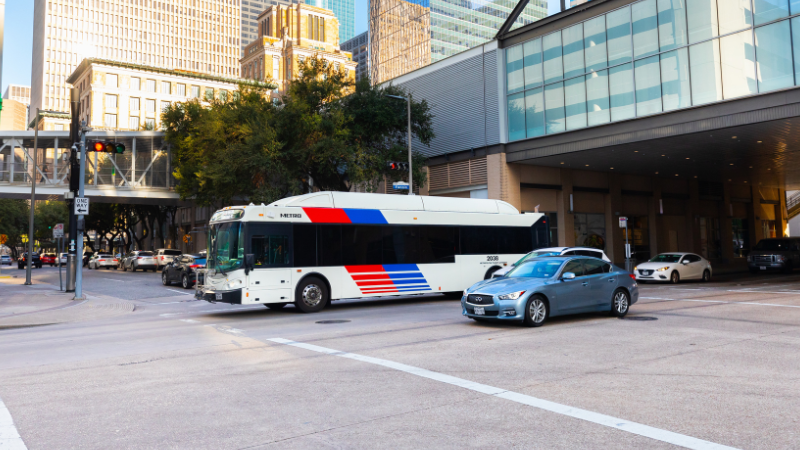
METRO’s Record $100M Grant to Boost Fleet Reliability, Cleaner Air
A cleaner, more reliable commute is on the horizon for Houston area residents, thanks to a $100.7 million federal grant awarded to METRO. The funding—received through the Federal Transit Administration’s competitive Low- or No-Emission Bus Program—marks the largest single grant ever awarded to a Texas transit agency.
The grant will fund the replacement of 100 aging diesel buses with clean-burning Compressed Natural Gas (CNG) buses, along with construction of a new CNG fueling station and upgrades to METRO’s maintenance infrastructure.
Serving Commuters From 290 to I-10
This investment brings immediate improvements for riders across the Houston area, with benefits likely reaching suburban Park & Ride locations like the Cypress Park & Ride (25210 US-290 Frontage Rd), Cy-Fair location (18502 Northwest Fwy), West Houston Park & Ride (14230 Old Katy Rd), Katy Park & Ride facilities (21669 Kingsland Blvd. and 1030 N Grand Pkwy), Spring (17444 Carlsway Rd) and Northwest Houston (7555 Seton Lake Dr). These routes serve thousands of daily commuters who travel via METRO’s express Park & Ride buses into Downtown Houston and the Texas Medical Center.
Compressed Natural Gas (CNG) is a clean-burning alternative to diesel fuel, made by compressing natural gas to less than 1% of its volume at standard atmospheric pressure, typically around 3,000 to 3,600 psi, according to the U.S. Department of Energy’s Alternative Fuels Data Center. In transit buses, CNG is stored in high-pressure onboard tanks and delivered to a modified internal combustion engine where it ignites much like gasoline—though with far fewer emissions.
Mobile Sidebar Ad
The new CNG buses are expected to begin rolling out in phases beginning in 2026, with infrastructure upgrades taking place throughout the year to accommodate the transition.
Environmental and Health Benefits
These vehicles will reduce harmful emissions by up to 98%, dramatically lowering nitrogen oxides and particulate matter that affect respiratory health in high-traffic areas. METRO projects a reduction of more than 15,500 metric tons of carbon emissions annually, equivalent to taking over 3,600 cars off the road. They also run more quietly, making them well-suited for high-mileage, urban and commuter routes like METRO’s Park & Ride service—delivering both environmental benefits and operational efficiency without sacrificing performance.
The agency also plans to displace over 2.27 million gallons of diesel fuel per year through the conversion, leading to long-term cost savings and reduced reliance on fossil fuels.
A Smarter, More Accessible System
“This funding represents a major step in our effort to transition METRO’s fleet to cleaner, more fuel-efficient vehicles,” said Interim METRO President & CEO Tom Jasien. “These improvements will strengthen our commitment to sustainability while ensuring we continue to deliver reliable service for the Houston region.”
Mobile Sidebar Ad
The upgrades go beyond emissions. Accessibility features like METROLift services, onboard Wi-Fi, and low-floor entries are being maintained or improved on the new CNG fleet—ensuring an inclusive experience for all riders.
The Low- or No-Emission Bus Program is a federally funded initiative designed to help transit agencies modernize their fleets with clean fuel technology, reduce emissions, and promote energy independence.
 Tiffany Krenek has been on the My Neighborhood News team since August 2021. She is passionate about curating and sharing content that enriches the lives of our readers in a personal, meaningful way. A loving mother and wife, Tiffany and her family live in the West Houston/Cypress region.
Tiffany Krenek has been on the My Neighborhood News team since August 2021. She is passionate about curating and sharing content that enriches the lives of our readers in a personal, meaningful way. A loving mother and wife, Tiffany and her family live in the West Houston/Cypress region.

